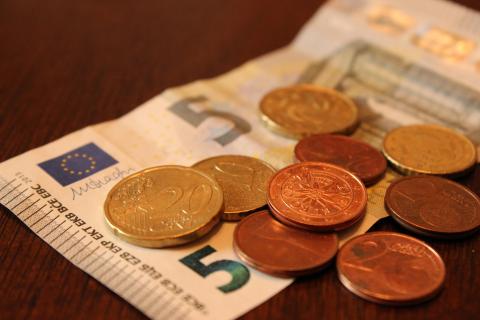5 Ways to Earn and Save Cash During Your Study Abroad Trip
Jul 16,2015
1. Use cash.
A scientific study that came out a few years ago showed that when you buy things with cash rather than with a credit or debit card, it registers in your brain as actually losing, or spending, money. To our brains, swiping a card doesn't register as spending money, but seeing cash in your hands disappear into the hands of a waiter or cashier does, therefore if you use cash, you are inclined to spend less overall. Using cash also helps you familiarize yourself with the likely different currency in the country you choose to study in. Another bonus to using cash is that what you hand over in paper money is all that you’ll spend. Sometimes when you use a debit or credit card overseas, you can get charged for each transaction, and that can add up fast if you’re eating out, shopping, buying drinks, or making a lot of individual purchases in general when you’re out and about.
2. Eat at home.
Obviously a good way to save money is to eat at home, or not spend money eating out as often. As much as it might seem like a bummer to not be able to indulge in the culture of food in a foreign country, grocery shopping in a different country is surprisingly fun. Try learning how to make a favorite dish that you’ve found on your trip, or inviting your new friends from abroad over to have dinner with you and your roommates. If you don’t know how to cook, this is an excellent opportunity to learn from other local students or from your new friends and roommates.
3. Become a restaurant or bar ambassador.
Sometimes bars, restaurants, or clubs will “hire” students to be ambassadors and essentially drum up business for them with other study abroad students. Being an ambassador can come with perks such as free appetizers, free drinks, and free admission (no cover), and VIP access. Although you aren’t truly making money, you don’t have to spend it on things you would want to enjoy anyway. This is also a great alternative option to actually getting a job at these kinds of places because the hours are much more flexible and less time consuming so that you can get the most out of the social part of your study abroad trip.
4. Use the city as your playground, or gym.
Going for a run in a foreign city or hiking through trails or forests is a great way to exercise that is also free. Why pay for a gym membership (that are usually pretty pricey in foreign countries) when you can explore the city you study in and exercise at the same time? Look for inexpensive daily bike rentals, student discounted hiking or walking tours, or go for a swim in the nearest body of water. There are also typically free or affordable workout classes through your school or its gym. Check with the activities or sports and recreations director when you study abroad to get all the information on the best places to get in a workout without even thinking about it. You can also bike or walk instead of taking public transportation, meaning you save on bus tickets. If you have to travel too far for walking distance, look into discounted monthly transportation passes for students.
5. Use your student ID for discounts.
Just like your home school and college town, your student ID is the key to great discounts. When studying abroad, your student ID is a good thing to have on your at all times anyway, but using it at restaurants also lets your waiter see that you aren’t a local, and if you play your cards right (if you’re polite and friendly) they sometimes offer you an extra free drink or dessert. Your student ID can get you discount on drinks, food, and admission to museums and tours at the very least. It might not seem like a lot, but a few discounts a week can add up by the end of your trip so you can return to the states without being entirely broke.
There are easily many more ways to earn and save while you are abroad, but keep these in mind to get you started. You’ll find discounts and ways to save on your own and learn to take advantage of weekly drink or “apertivo” specials, where the best food for a good price is, and what ways to save cash work best for you. You have to go in to your study abroad trip knowing you will be spending money, but know that you don’t have to blow through all of it as quickly as you think.






